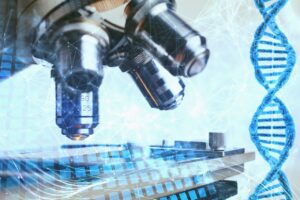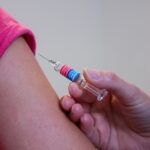For years, inflammatory bowel disease (IBD) treatment has focused on one major goal: reducing inflammation. It makes sense—Crohn’s disease and ulcerative colitis are, after all, diseases of chronic gut inflammation. But what if inflammation isn’t the whole story? What if there’s something deeper going on that could completely change the way IBD is treated? Well, that’s exactly what new research is starting to reveal, and it might be the breakthrough that patients have been waiting for.
Scientists are now discovering that IBD isn’t just about inflammation—it’s also about how the gut heals, or in many cases, how it doesn’t heal properly. It turns out that in people with IBD, the gut lining struggles to repair itself the way it should. Instead of bouncing back after an inflammatory response, the gut barrier remains weak, leaving it vulnerable to further damage and making flares more frequent. This discovery is shifting the focus from just calming inflammation to actually strengthening the gut lining itself.
So, what does this mean for treatment? It means that doctors and researchers are starting to look at ways to support gut healing beyond traditional anti-inflammatory medications. One of the biggest areas of interest is the gut microbiome—those trillions of bacteria that live in your digestive system and play a huge role in keeping the gut barrier strong. New treatments are now being developed that focus on restoring the balance of these bacteria, using everything from targeted probiotics to fecal microbiota transplants (yep, poop transplants).
Another promising approach involves nutrients and compounds that help rebuild the gut lining. Scientists are looking into things like butyrate, a short-chain fatty acid produced by healthy gut bacteria, which helps strengthen the intestinal wall. There’s also growing interest in specific amino acids, like glutamine, which play a key role in gut repair. Instead of just fighting inflammation, future treatments may focus on giving the gut the building blocks it needs to recover and stay strong.
This shift in thinking is also changing the way doctors look at diet and lifestyle. While diet has always been a tricky subject in IBD, new research suggests that certain foods can actively promote gut healing rather than just avoiding triggers. Foods rich in polyphenols (like berries and green tea), omega-3 fatty acids (found in salmon and flaxseeds), and fermented foods (like kefir and kimchi) may play a role in strengthening the gut lining and reducing flare-ups.
The most exciting part of all of this? It means that treatment is becoming more personalized. Instead of a one-size-fits-all approach that only suppresses inflammation, doctors are starting to look at each patient’s unique gut environment and healing capacity. The goal is no longer just to put out the fire of inflammation but to rebuild the house so it doesn’t burn down again.
For anyone living with IBD, this new discovery offers hope. It means that the future of treatment isn’t just about managing symptoms—it’s about true, long-term gut health. And that’s a game-changer.








